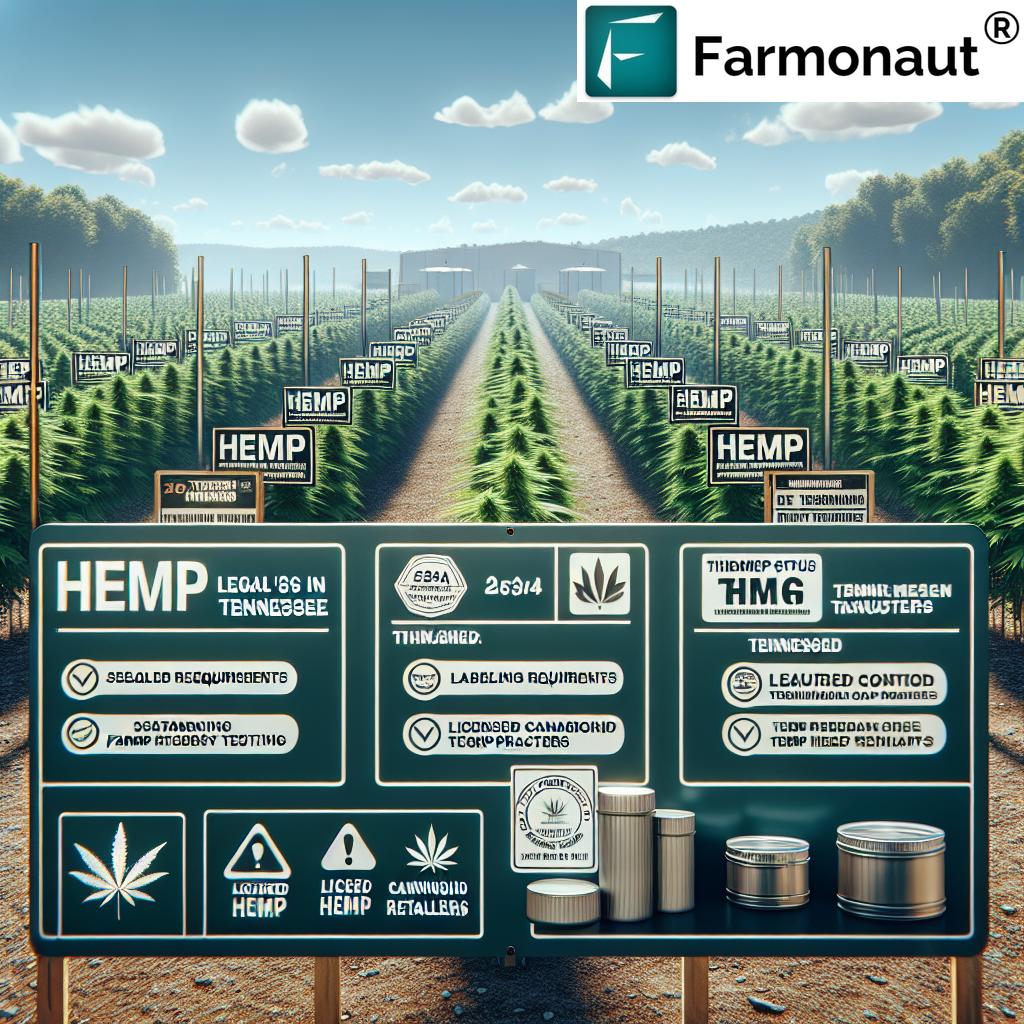Top HBCU Agriculture Programs 2025: Best Agriculture Options
“Over 15 HBCUs offer specialized agriculture programs focusing on sustainability and technological innovation in 2025.”
HBCU Agriculture Programs: Cultivating Excellence and Innovation in Farming, Forestry, and Agricultural Sciences in 2025
In the rapidly evolving world of agriculture, the role of Historically Black Colleges and Universities (HBCUs) in fostering innovation, diversity, and sustainability remains critically important. As we advance through 2025, HBCU agriculture programs continue to shape the future of farming, forestry, and agricultural sciences by preparing the next generation of leaders, researchers, and professionals. These programs address global challenges like food security, climate change, and sustainable resource management, cultivating a legacy of excellence within African American and minority communities.
This in-depth guide explores the top HBCU agriculture programs in 2025, highlighting their historical importance, current offerings, technological advancements, and future directions. We also provide a detailed comparison of the leading universities, insight into key trends, and resources for students and stakeholders seeking to make meaningful impacts in the agricultural sector.
The Historical and Contemporary Role of HBCUs in Agriculture
HBCUs were originally established to provide higher education opportunities to African American students who faced exclusion from mainstream institutions. Among the most pivotal academic areas, agriculture emerged as a foundational focus, reflecting deep ties to land, farming, and community empowerment.
Land-grant universities such as Tuskegee University (Alabama), North Carolina A&T State University, and Florida A&M University (FAMU) became cornerstones in agriculture, offering training for African American farmers, researchers, extension agents, and agricultural educators. These colleges contributed substantially to rural development, local economies, and advancement in agricultural sciences.
As of 2025, HBCU agriculture programs have evolved to tackle modern challenges by integrating biotechnology, precision agriculture, sustainability, rural development, and forestry management. They encourage innovation not only through research but also by supporting community-based agriculture programs, youth engagement through FFA, and entrepreneurial opportunities in agribusiness.
Overview of HBCU Agriculture Programs in 2025
In 2025, HBCUs continue to offer diverse and comprehensive agriculture programs that encompass a range of disciplines:
- Agronomy & Crop Science: Studies in plant genetics, soil science, crop improvement, and precision management.
- Animal Science: Focused on livestock production, animal health, nutrition, and sustainable farming practices.
- Forestry & Natural Resources: Covering conservation, wildfire mitigation, sustainable forest management, and biodiversity.
- Agricultural Engineering: Integrating technology, robotics, and smart farming solutions for efficiency.
- Agribusiness & Food Science: Preparing students for leadership roles in food systems, supply chain management, and entrepreneurship.
Some leading HBCUs with robust agriculture programs are:
- Tuskegee University (Alabama): With its College of Agriculture, Environment and Nutrition Sciences, Tuskegee offers leading research in crop improvement, soil science, and sustainable agriculture. It’s renowned for natural resource management and rural community engagement.
- North Carolina A&T State University: Through the College of Agriculture and Environmental Sciences, it emphasizes agribusiness, sustainable systems, and technology integration in modern agriculture.
- Florida A&M University (FAMU): FAMU’s College of Agriculture and Food Sciences is known for urban farming research, addressing food security, and promoting sustainability in underserved communities.
- Alcorn State University: Its School of Agriculture and Applied Sciences excels in forestry, sustainable natural resources management, and technology-driven agricultural economics.
These colleges and universities foster learning through research centers, active farms, extension services, and strategic partnerships with federal agencies like USDA, benefiting students, faculty, and local communities.
Comparative Table: Leading HBCU Agriculture Programs 2025
| HBCU Name | Location | Specialized Agriculture Fields | Estimated Enrollment (2025) | Sustainability/Innovation Rating (1-10) |
Notable Research Initiatives | Unique Program Features |
|---|---|---|---|---|---|---|
| Tuskegee University | Alabama | Agricultural Sciences, Sustainable Ag, Forestry | 850+ | 10 | Precision crop science, soil health, community food security | Technology-integrated curricula, extensive USDA-funded research |
| North Carolina A&T State University | North Carolina | Agribusiness, Plant Science, Environmental Systems | 780+ | 9.5 | Sustainable farming practices, urban/rural integration | GIS labs, agri-robotics, focus on minority participation |
| Florida A&M University (FAMU) | Florida | Food Science, Plant Science, Urban Farming | 590+ | 9 | Urban agriculture, food desert mitigation, hydroponics | Leadership in food security, innovation in community engagement |
| Alcorn State University | Mississippi | Forestry, Soil Science, Natural Resources | 430+ | 8.5 | Conservation, carbon sequestration, climate resilience research | Sustainable forestry, carbon research, small-scale farmer outreach |
| Prairie View A&M University | Texas | Agricultural Economics, Plant & Soil Sciences | 290+ | 8 | Farm economics, agtech, alternative crops | Agri-entrepreneurship, focus on rural innovation |
| Southern University and A&M College | Louisiana | Animal Science, Sustainable Ag, Environmental Science | 260+ | 8 | Climate-resilient crops, environmental impact | Extension centers, minority leadership training |
| Fort Valley State University | Georgia | Biotechnology, Agricultural Engineering | 230+ | 8.5 | Biotech in crop improvement, automation | Smart farm technologies, K-12 youth STEM outreach |
“HBCU agriculture enrollment increased by 22% from 2020 to 2025, reflecting growing interest in agri-tech careers.”
The Importance of HBCU Agriculture in Contemporary Agriculture and Forestry
As we face escalating global challenges—from climate change to resource scarcity and a rapidly evolving technology landscape—HBCU agriculture programs offer unique, community-driven solutions. Their contributions in 2025 include:
1. Promoting Diversity and Inclusion in Agriculture
The agriculture sector has long needed more equitable representation. HBCUs are at the heart of cultivating talent from African American and other minority groups, providing supportive environments, mentorship networks, and relevant curricula that inspire success in modern agricultural fields.
2. Advancing Sustainable and Climate-Resilient Farming
Education in sustainable practices is central at HBCUs, integrating climate-smart approaches including precision irrigation, soil carbon sequestration, drought-resistant crops, and agroforestry. Research and extension programs address region-specific vulnerabilities, especially in southern and tropical zones.
3. Leveraging Technology and Innovation
HBCUs are pioneers in incorporating modern technologies:
• Geographic information systems (GIS), AI, and machine learning
• Drone-based crop monitoring
• Data-driven decision-making in farm management and agribusiness
Preparing students for the future, these programs create a bridge between tradition and next-generation solutions.
4. Supporting Rural Economies and Food Security
Through university-led extension services, HBCUs provide direct education to local farmers and communities, helping to enhance productivity, mitigate risks, conserve water and soil, and bolster food security via participation in 4-H, FFA, and similar initiatives.
5. Leading in Forestry and Natural Resources Management
Forestry programs at HBCUs, like those at Alcorn State University, have taken on a new urgency given their crucial role in carbon sequestration, biodiversity, and ecosystem services. Students learn sustainable forest management, wildfire mitigation, and wildlife conservation—all essential for future resiliency.
Programs and Opportunities For Agriculture Students at HBCUs
HBCU agriculture programs typically offer a broad spectrum of academic opportunities designed for diverse ambitions, including:
-
Undergraduate & Graduate Degrees:
- Bachelor’s degrees in agriculture, forestry, agribusiness, soil science, plant science, animal science, environmental sciences, and engineering.
- Master’s and doctoral programs emphasizing research, natural resource management, and sustainable development.
- Specialized Research Centers: Many HBCUs maintain centers for crop improvement, climate mitigation, AI integration, and sustainable food systems.
- Extension & Outreach Programs: Extension services link university knowledge with local farmers, youth agencies, and rural development projects, driving inclusive progress.
- Internships & Partnerships: HBCUs often provide access to internships via governmental agencies, private organizations, and nonprofits for hands-on job training.
- Entrepreneurship Training: With growing demand for agri-startups, many HBCUs now enhance entrepreneurial curricula, supporting students in launching agribusiness ventures.
Popular Career Fields After Graduation:
- Farm and agribusiness management
- Agriscience research and technology development
- Environmental and natural resource management
- Extension services and rural outreach
- Food security, nutrition, and public health roles
- Sustainable forestry and conservation
- Bioinformatics, biotechnology, and data science in agriculture
Harnessing Technology & Innovation: Farmonaut and Modern Agriculture Programs
In 2025 and beyond, the intersection of technology and agriculture defines both the success and sustainability of the sector. HBCU agriculture programs are rapidly integrating satellite monitoring, data analytics, AI, and robotics to prepare their students for technology-driven, high-impact roles.
Now, more than ever, innovative platforms like Farmonaut empower farmers, students, and institutions by facilitating affordable, precision agriculture through real-time, satellite-based solutions. We help to bridge the gap between tradition and innovation by making:
- Satellite-based crop health monitoring accessible for all sizes of agricultural operations
- AI-driven advisory and decision-support systems—check out our Carbon Footprinting tools to track, monitor, and reduce emissions on and off campus
- Blockchain-based traceability (Farmonaut Traceability), bringing security and transparency to agricultural supply chains for educators, students, and market partners
- Fleet & resource management platforms to organize university farms and hands-on student projects (Fleet Management)
- Specialized APIs for academic developers, enabling seamless integration of satellite & weather data – try our API services and read our API Developer Docs
We understand the drive for real-time data and measurable outcomes in modern agriculture programs. Our platform supports:
- Real-time crop health monitoring for experimental fields at HBCUs and extension farms
- Resource optimization, fighting waste in irrigation, fertilizer, fuel, and labor allocation
- Direct support for large-scale field monitoring – see more on our Large Scale Farm Management suite
- Solutions for crop loan and insurance verification, providing confidence for university farm finances (Crop Loan and Insurance Management)
- Student-driven forest and plantation advisory via Crop, Plantation & Forest Advisory
Farmonaut Subscription Plans for Agri-Programs & Institutions
To support both individual students and institutional needs, we offer flexible subscription packages:
Challenges and Future Directions in HBCU Agriculture
While progress in HBCU agriculture programs is inspiring, several challenges and areas for future improvement remain:
- Funding Constraints: Many HBCUs operate with more modest resources than other land-grant universities, often limiting their ability to acquire cutting-edge technology or expand research programs.
- Access to Technology: Ensuring all students and faculty can use state-of-the-art technologies, from AI platforms to field robotics, is a constant challenge.
- Recruitment and Retention: Attracting more students to agriculture means shifting perceptions about the sector’s modern relevance, providing competitive opportunities and scholarships, and highlighting innovation-driven careers.
- Expanding Interdisciplinary Approaches: Future-ready programs must integrate data science, public health, climate research, and policy to equip graduates for the complexity of modern agriculture.
- Broadening Rural Impact: Scaling the outreach of university extension services can better empower small, minority, and women-owned farms, increasing both equity and economic impact in rural communities.
- Keeping Curricula Current: Rapid advancements in agri-tech, satellite analytics, blockchain, and sustainability require ongoing updates to academic teachings and research priorities.
The future of HBCU agriculture programs will rely heavily on robust support from federal agencies, philanthropic organizations, and communities committed to investing in both tradition and innovation.
Conclusion: The Enduring Impact of HBCU Agriculture Programs in 2025 and Beyond
As the world grapples with the demands of food security, climate resilience, and rapid technological change, HBCU agriculture programs in 2025 exemplify what it means to cultivate both excellence and inclusivity. By nurturing diverse talent, bridging historical gaps in access, and advancing sustainable solutions, these programs not only prepare their students for rewarding careers but also strengthen the capacity of the agricultural sector as a whole.
The rising popularity and impact of HBCU agriculture is clear—reflected in rising enrollment, groundbreaking research, and a growing influence on both local and global food systems. For those seeking a meaningful education and a future-facing career in agriculture, forestry, or agricultural sciences, the nation’s leading HBCUs offer unmatched opportunities, support, and inspiration for the next generation of agricultural leaders.
By integrating tradition with cutting-edge technology, and supporting community-centric development, HBCUs leave a proud legacy that will continue to play a pivotal role in American agriculture for decades to come.
FAQ: HBCU Agriculture Programs in 2025
Which HBCUs offer top agriculture programs in 2025?
Leading HBCUs include Tuskegee University (Alabama), North Carolina A&T State University, Florida A&M University (FAMU), Alcorn State University, Prairie View A&M University, Southern University and A&M College, and Fort Valley State University.
What fields of study are available in HBCU agriculture programs?
HBCU agriculture programs cover agronomy, animal science, forestry, agricultural engineering, agribusiness, environmental science, soil science, horticulture, and more. Specialized tracks include biotechnology, precision agriculture, and sustainable food systems.
How do HBCU agriculture programs support student success?
HBCUs offer mentorship, scholarships, hands-on training via research farms and extension programs, access to internships, and technology-forward curricula that foster real-world skills and job readiness.
What careers do graduates pursue?
Graduates become leaders in farming, agribusiness management, agricultural research, environmental conservation, policy analysis, and public health nutrition, serving local communities, corporations, or federal agencies.
How are technology and innovation integrated into HBCU programs?
HBCUs integrate AI, satellite data, precision agriculture technologies, and holistic farm management systems into academic and hands-on experiences. Our Farmonaut platform offers universities and their students affordable access to these modern technologies via apps, web tools, and APIs.












